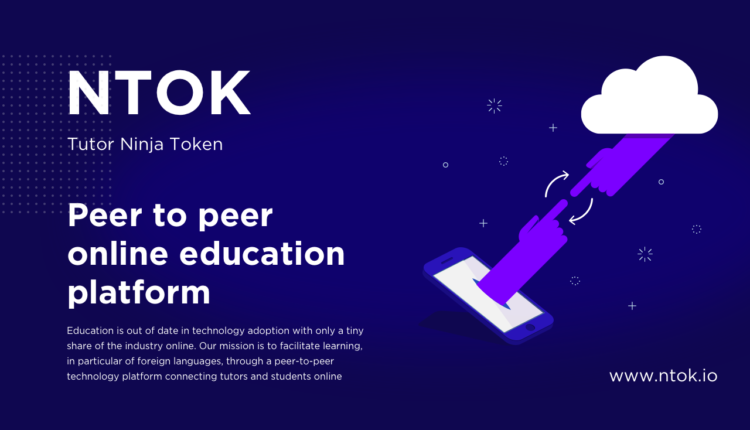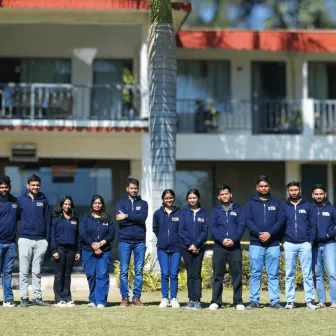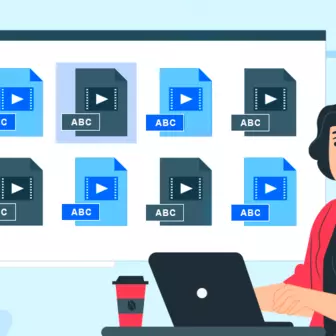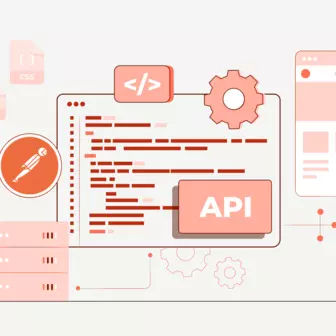A world of opportunities awaits you when you join the bandwagon of higher education aspirers and wish to prosper in your area of study. Envisage graduating from a university and earning a certificate in digital format powered by a disrupting technology like blockchain. The way education is provided and managed is a continuously evolving procedure. With blockchain bursting onto the scene, the education sector is looking to harness the best of this tech genius to improve its management.

The blockchain technology is in the veins of the education sector where several educational institutions are getting ready to implement blockchain-based tools. Many are even conducting research which will pave the way for identifying the strengths and weaknesses of the implementation of blockchain technology in education. Let’s assess the issues encountered in the field of education, ways of resolving them using blockchain technology and instances of leveraging blockchain in this field.
Exploring blockchain
“The network is robust in its unstructured simplicity. Nodes work all at once with little coordination” - Satoshi Nakamoto
Satoshi Nakamoto, in his original Bitcoin white paper, defined an electronic coin - the Bitcoin - as “a chain of digital signatures” called blockchain.

In spite of its apparent intricacy, a blockchain is just another type of database for recording transactions that is copied to every other computer in a participating network. Therefore, it is also referred to as a ‘distributed ledger’. In a blockchain, data is stored in fixed structures called ‘blocks’.
Benefits of Blockchain in Education
Digitisation is at the heart of blockchain and that makes life easier for the whatever administration trying to get the most out of this tech marvel. Blockchain can be very advantageous in the education sector.
Blockchain can replace paper
One of the most discussed merits of blockchain technology in this field is that it can make dematerialisation of documents a possibility. It can also aid in avoiding the risk of losing or falsifying paper documents.
Blockchain is cost-effective
Blockchain helps in transferring the right to control and store the applicant’s personal data to the applicant himself. Institutions can reliably and responsibly store documents and offer access to the applicants at the request of employers and authorities. Thus, Blockchain will help in saving millions of dollars as well as numerous hours of labour. So, it removes the burden on educational institutions.
Financing accounting using the blockchain technology
Financial accounting is a significant component in the administrative workflow of schools, universities and other educational institutions. Blockchain technology can bring betterments in the system for calculating scholarships for students and salaries for teachers and can offer a transparent and fair mechanism for funding grants and projects.
Implementing Blockchain technology in education
Do you have any examples of blockchain applications in education? The blockchain is really a disintermediation technology. It has applications in the world of learning at the individual, institutional, group, national, and international levels. It is relevant in all sorts of contexts like schools, colleges, universities, MOOCs (Massive Open Online Courses), CPD (Continuing Professional Development), corporates, apprenticeships, and knowledge bases.
The blockchain is really a disintermediation technology!
Data transparency
For tackling the increasing need for data transparency and collaboration, Columbia University and IBM set out to create the Centre for Blockchain and Data transparency. The Centre will drive cutting-edge research into the future of data sharing including blockchain and data encryption. It will, thus, bring together cross-disciplinary teams to tackle data transparency and data ownership.
Interactive experience

Designed as an international marketplace platform, TeachMePlease launched the Disciplina blockchain project together with the developers of Cardano. This project aims to offer simple and efficacious interaction between applicants at educational institutions and private teachers, as well as HR managers, while simultaneously being responsive to their needs.
Digital certificate
Massachusetts Institute of Technology (MIT) showed how blockchain can be used to provide the digital certificate to the students. Over 100 graduates could receive their diplomas in digital format via an app in addition to the usual paper-based format. Blockcerts Wallet application could issue certificates that allowed graduates to safely share a verifiable and tamper-proof digital version of their diplomas to the employers.

Also, the Knowledge Media Institute (KMI) within the Open University worked with APPII - a blockchain career verification platform - for creating a platform that can register and verify student academic records. With its history of providing flexible distance learning courses, the Open University has over hundreds and thousands of students using its own core open learning platform. Hence, there is a huge potential for developing a blockchain strategy to classify all courses within the university which could lower costs and enhance the validity of the qualifications.
Educational platform
Zebi Data, a startup working on blockchain technologies, developed an exclusive blockchain platform for the education sector. Any educational institution that wants to join, this platform will act as a node with full control on the data that they own. They will receive requests from stakeholders for verifying a particular certificate issued by them. They will vet the request and give an answer by checking the database.
With underlying tech pioneered by data and analytics marketplace Experfy, in the Harvard Innovation Lab, the Cayman Islands-based Expercoin launched an initial coin offering (ICO) for building a decentralised education platform. This platform strives to support upskilling, assessments, mentorships, and peer-to-peer financial aid.
On-Demand Education Marketplace (ODEM) is another platform that aims to offer learners and teachers with a flexible educational hub for directly connecting, planning and confirming in-person courses. Blockchain enables ODEM to remove institutions that stand between students and teachers.

The Tutor Ninja NTOK ecosystem is having a future vision of global learning and tuition that uses blockchain technology at its core. It is an evolution of a private tutoring operator called Tutor Ninja into a three-level blockchain infrastructure for continuing, lifetime education. The NTOK tokenisation platform concept constitutes online schools, an online aggregator of private tutor services in addition to tutors and NTOK ecosystem partners’ services. The standard private tutoring secures chosen tutor’s hours at a fixed price.
E-portfolio for all academic credentials
TEx, the University of Texas program for building better educational experience, worked on ChainScript, that aims to create an immutable portfolio for each student with blockchain technology. This portfolio can comprise of things like credits, competencies, micro-certificates, degrees, and other records of achievement. This would lower down the cost of verifying students’ credentials for universities.
Immutable portfolio of students managed using blockchain cuts down the cost of verifying students' credentials for universities.
The Lifelong Learning Passport
The Ledger Project is a scenario that visualises a changed education system in the year 2026 where everything you have learned is tracked through the blockchain on ‘Edublocks”. Ledger aims to streamline the process of finding skills matching their needs and assist potential students to find investors for their education.
Also, Knowledge is an initiative that aims to reward knowledge via a platform where users can share their expertise and swiftly reward and validate voluntary and gamified learning with knowledge tokens. Users’ knowledge and interests would then be quantified for letting others to understand the level of veracity for any particular user’s statements.
Payment via cryptocurrency
The University of Nicosia (UNIC) has claimed a number of ‘world firsts’ in its efforts to get the most out of blockchain in the education field. UNIC claims it is the first university to accept Bitcoin for tuition for any degree program at the university and teach a university-level course as a MOOC on cryptocurrency.
The Bottom Line
The blockchain technology is rapidly disrupting the technological field and different sectors are trying to extract the best out of it. The education sector has an immense potential and can have walloping benefits through blockchain.
At Opensense Labs, we offer a suite of Drupal services and have been pioneering in our efforts to help digital firms transform their online presence.
Contact us at [email protected] to understand how can you leverage the benefits of blockchain in your organisation.
Subscribe
Related Blogs
Trek n Tech Annual Retreat 2025: A 7-Day Workcation of OSL

OSL family came together for the Trek n Tech Annual Retreat 2025, a 7-day workcation set amidst the serene beauty of…
Exploring Drupal's Single Directory Components: A Game-Changer for Developers

Web development thrives on efficiency and organisation, and Drupal, our favourite CMS, is here to amp that up with its…
7 Quick Steps to Create API Documentation Using Postman

If you work with API , you are likely already familiar with Postman, the beloved REST Client trusted by countless…




